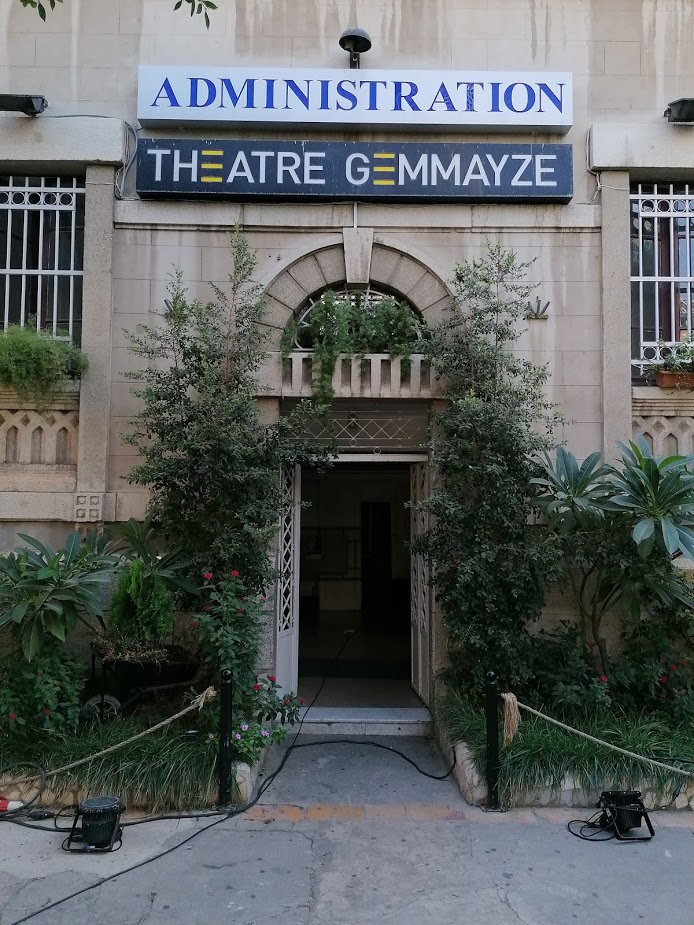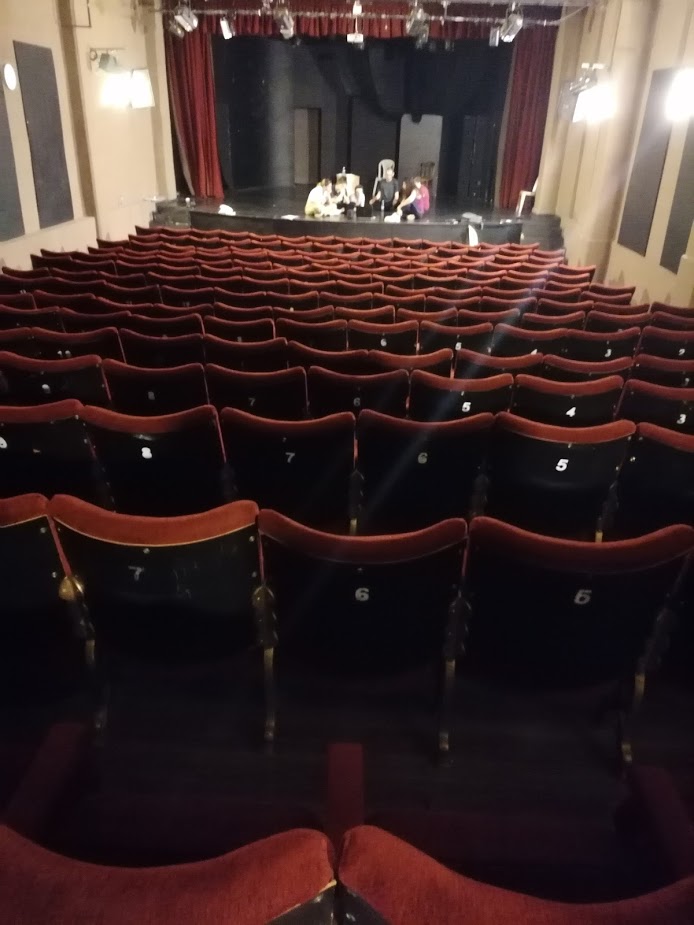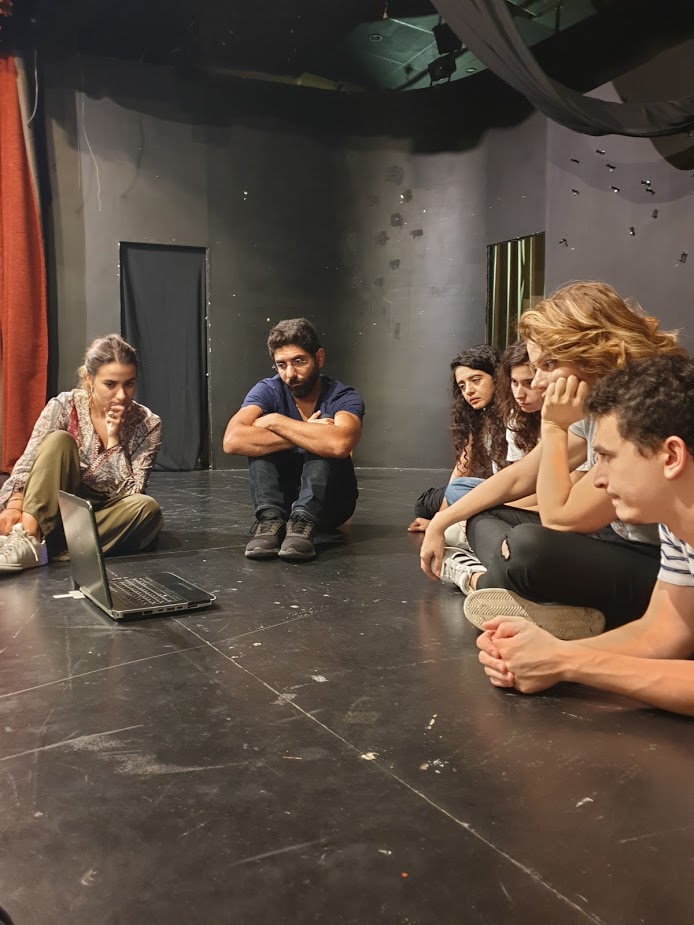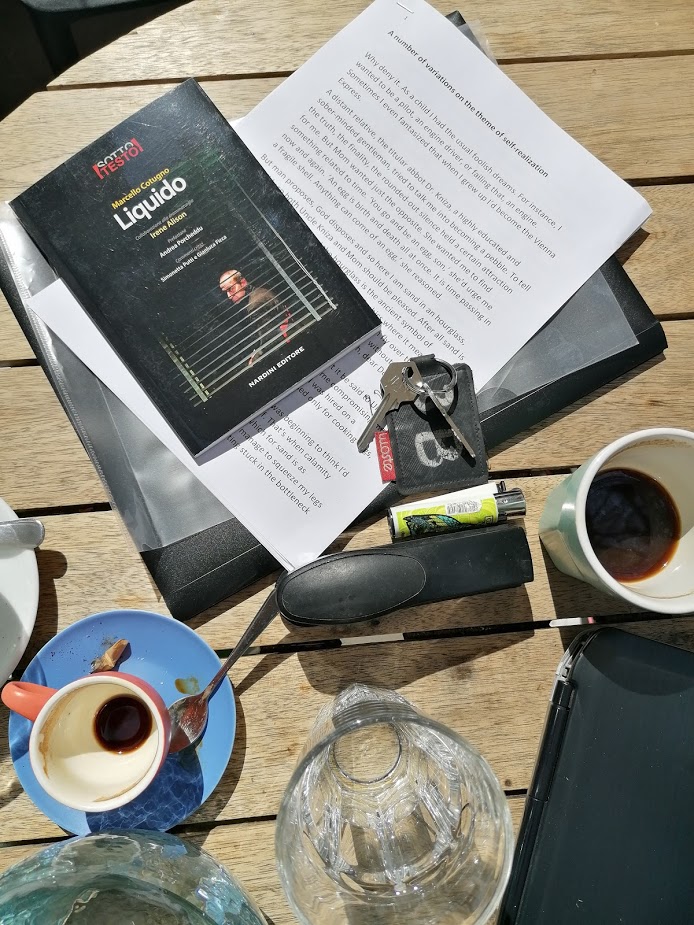

Dramaturgical analysis and character
construction in two plays on generation gap by
Marcello Cotugno: Anatomy of the death of…
(2000) and Liquid (2017)
Educational Goals
Trough the study and analysis of a group of monologues taken from both plays, the students
will accomplish a new self-awareness about being on stage hic e nunc. Through training and in
depth play analysis, the students will reach a know-how of how to experience the character in
a peculiar way, with emotional nuances and control of their self.
Programme • Organic Acting
• Awareness of Stage Relationship
• Attention or Concentration
• Text Analysis
• Being True
• Emotional Feedback
Teaching Methods: Crossover between pedagogical approaches
by: Eugenio Barba, David Mamet, Robert
Wilson, Eimuntas Nekrosius, Declan Donnellan,
Lajos Egri, Kostantin Stanislavskij
The dramaturgical idea behind the plays used as study material for this workshop emerges from a
reflection on the disintegration of the concept of family in the contemporary world. It deals with
possible further changes in emotional relationships and generational balances in the near future.
Both plays, moreover, respond to a request for attention for those stories that, although not
raising from a geographical or social periphery, try to explore the inner degradation of ordinary
people.
Anatomia della morte di... (“Sette Spettacoli per un Nuovo Teatro per l’anno 2000” National
Dramaturgy Award winner, staged at the Teatro Argentina in Rome) mimics the style of a crime
investigation, searching for a semblance of truth in a circumstantial process which analyzes firsthand the dissatisfaction and loneliness of youth, trying to avoid the paternalistic perspective with
which it is generally observed from adults.
The play tells the story of Daniele, 27, lazy student and spoiled son of the Italian middle class.,
Looking for antidotes to the existential void of the 90s and the bourgeois dullness of his family,
Daniele decides to take his own life on New Year's Eve 2000 (the so-called Y2K). No trace helps
those who remain to understand his gesture. It will be up to his best friend Federico to start a hunt
outside and inside the computer screen, on the boundary between real life and the "net", to
rebuild Daniele's death anatomy. All around, another network unfolds, that of Daniele’s
relationships - Ester, his girlfriend, Anna and Giuliano, his parents, Michele, the friend who has
always betrayed him – a network where the sense of guilt for Daniele’s suicide secretly obsesses
everyone.
It will be Daniele himself, in a last monologue, to "absolve" everyone, offering a bitter explanation
and leaving other questions unsolved: perhaps, the reasons for his gesture lies in the unbearable
confrontation between the uselessness of real life and the unsustainability of the virtual one.
The action takes place in a theatre made of words but also of visual effects: new technologies, new
intelligences, the computer as an extension of the brain, the internet as an extension of the
computer, the theatre as the maximum extension of everything.
Liquido, written with the collaboration of the journalist Irene Alison, is the natural continuation of
this research on dysfunctional family and generational clash.
The play has been nourished by my interest in cyberpunk literature - from William Gibson's The
Academy of Dreams to Murakami Haruki's 1Q84 - and tries to amplify the tensions of the present
time projecting the spectator in a foreseeable future. Once again, we find ourselves in a bourgeois
interior: here we meet Guido, 70. A family man who, after an ordinary life of work, it’s now a
retiree without a purpose, with only a distant wife and two obstinately unaffectionate daughters.
Her daughters, Elena and Sofia, are a mix of post-punk nihilism and reckless ethical relativism, sons
of a future that pushed the relational and emotional "liquidity" of the present towards an extreme
limit.
Workshop#6 Anatomy of a Family Breakdown
If in Anatomy of the death of... the generational collision is seen through the eyes of the suicidal
son, in Liquido family conflicts are developed from an opposite perspective: the father’s one.
Guido denies his very blood and daughters, not recognizing himself anymore in the choices (made
or not made) in an entire life. The individualism of the present time, projected into the near future
of the play, leads in fact to a reversal of plans: it is no longer the son who rebels against family
conventions, but it is the father who denies his daughters to chase the dream (or perhaps the
illusion) of his own individual realization.
From an educational point of view, the main goal for the students is to explore these
emotional/relational complexities as a prism through which multiply their own interpretative
possibilities. The actor becomes a vehicle for conveying messages and generating questions, for
the audience to continue reflecting upon once out of the theatre.
Being true on stage is the main challenge for actors, even (or above all?) when they are requested
to use a contemporary language and to interpret a contemporary dynamic. Credibility is the only
way through activating the empathy between stage and audience: real communication only
happens when actors sincerely live the moment on stage, emancipating both body and mind from
selfish concerns and histrionics performances.
From this point of view, helping them to remove stage-fear and all the emotional blocks they (and
we all) have due to culture and education it’s a pivotal step to bring the actor back to an
interpretative purity, based less on self-referential concentration and more on attention to what
happens on stage. A fundamental mindset shift for the actors: the translation of thoughts and
emotions from the ego dimension to the outside world.



